Abstract
OBJECTIVES: This study evaluated the influence of features of community social environment and service system integration on service use, housing, and clinical outcomes among homeless people with serious mental illness. STUDY SETTING: A one-year observational outcome study was conducted of homeless people with serious mental illness at 18 sites. DATA SOURCES: Measures of community social environment (e.g., social capital) were based on local surveys and voting records. Housing affordability was assessed with housing survey data. Service system integration was assessed through interviews with key informants at each site to document interorganizational transactions. Standardized clinical measures were used to assess clinical and housing outcomes in face-to-face interviews. RESEARCH DESIGN: Structural equation modeling was used to determine the relationship between (1) characteristics of the social environment (social capital, housing affordability); (2) the level of integration of the service system for persons who are homeless in each community; (3) access to and use of services by individual clients; and (4) successful exit from homelessness or clinical improvement. PRINCIPAL FINDINGS: Social capital was associated with greater service systems integration, which was associated in turn with greater access to assistance from a public housing agency and to a greater probability of exiting from homelessness at 12 months. Housing affordability also predicted exit from homelessness. Neither environmental factors nor systems integration predicted outcomes for psychiatric problems, substance abuse, employment, physical health, or income support. CONCLUSION: Community social capital and service system integration are related through a series of direct and indirect pathways with better housing outcomes but not with superior clinical outcomes for homeless people with mental illness. Implications for designing improved service systems are discussed.
Full text
PDF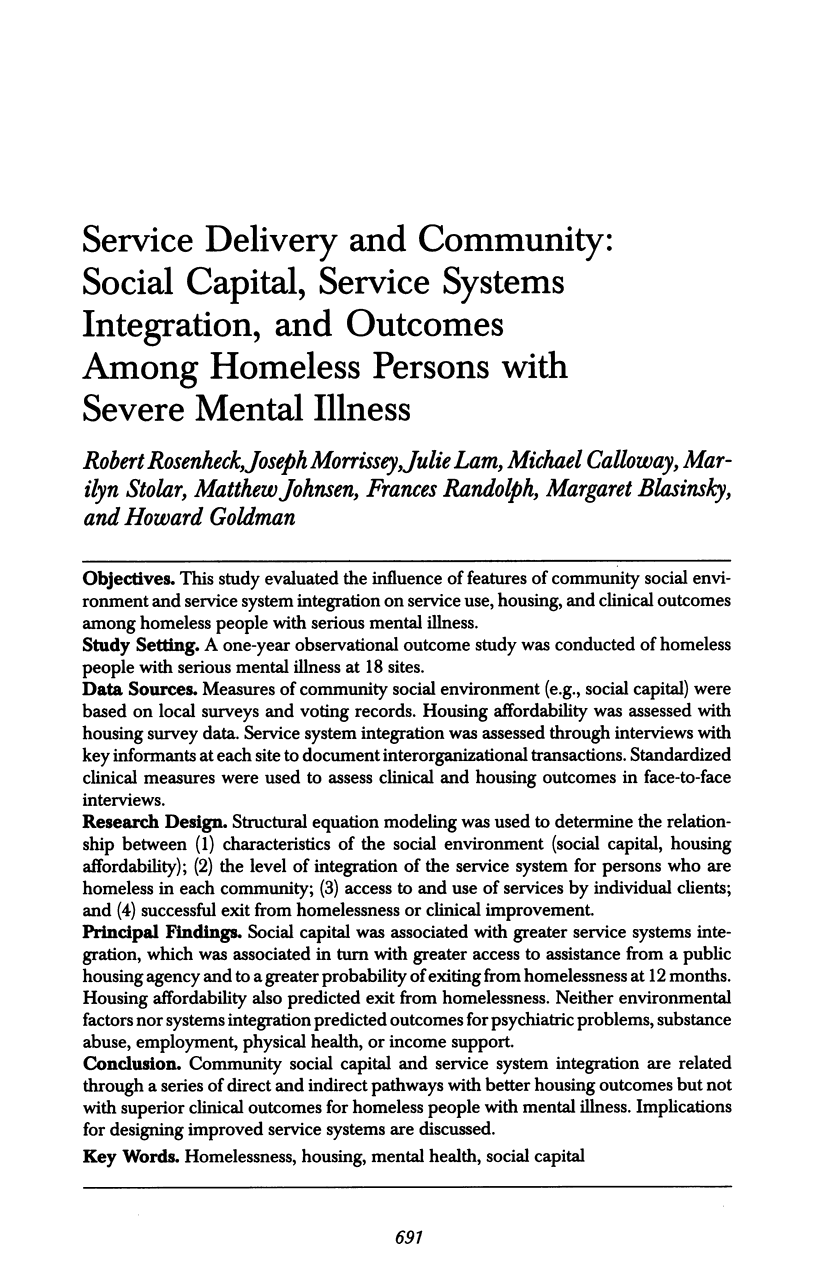
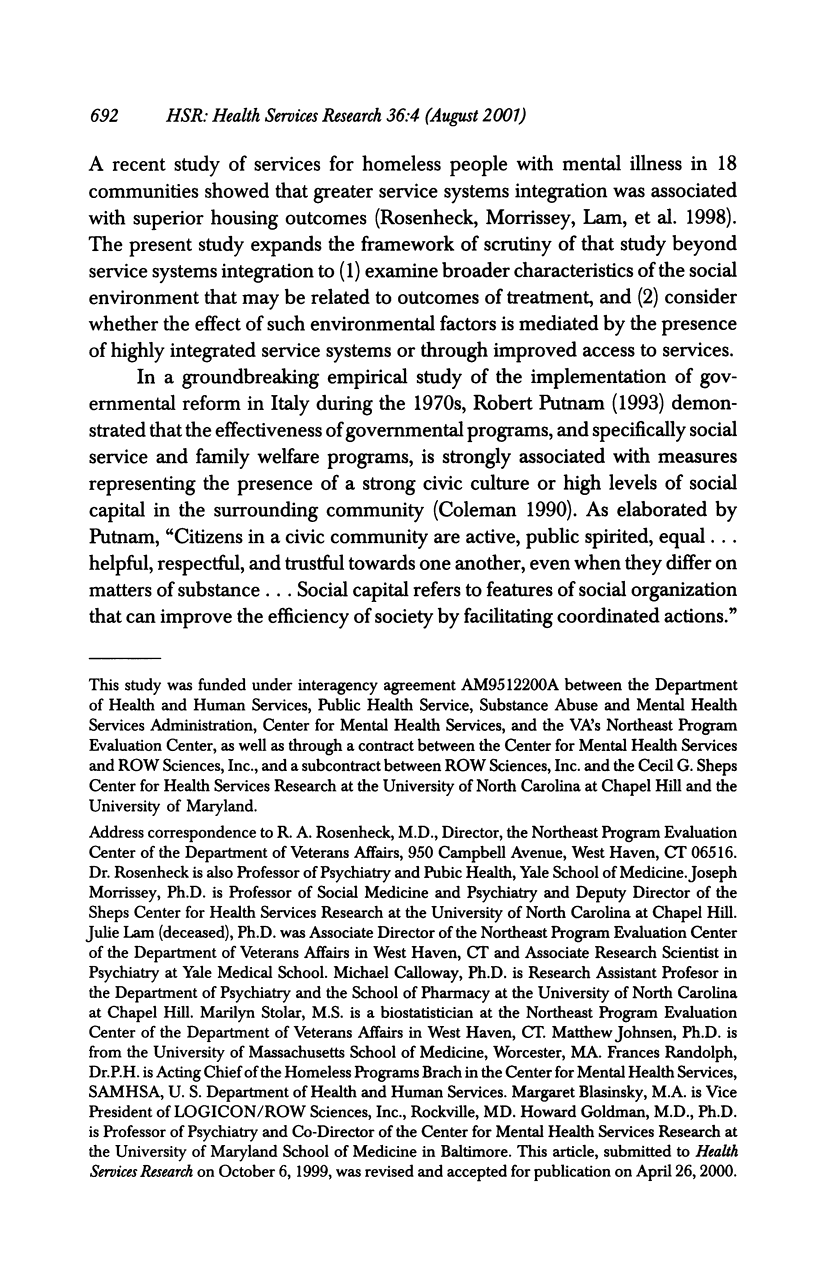
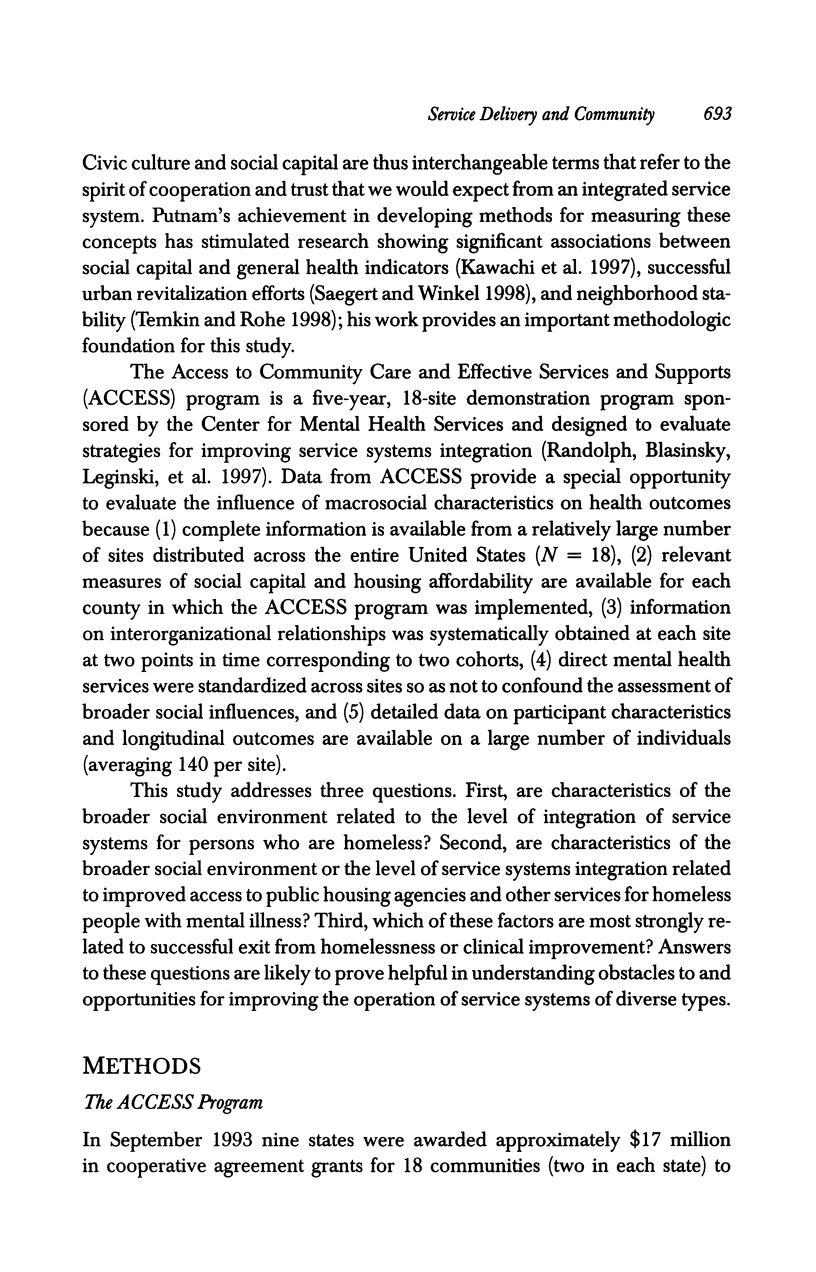
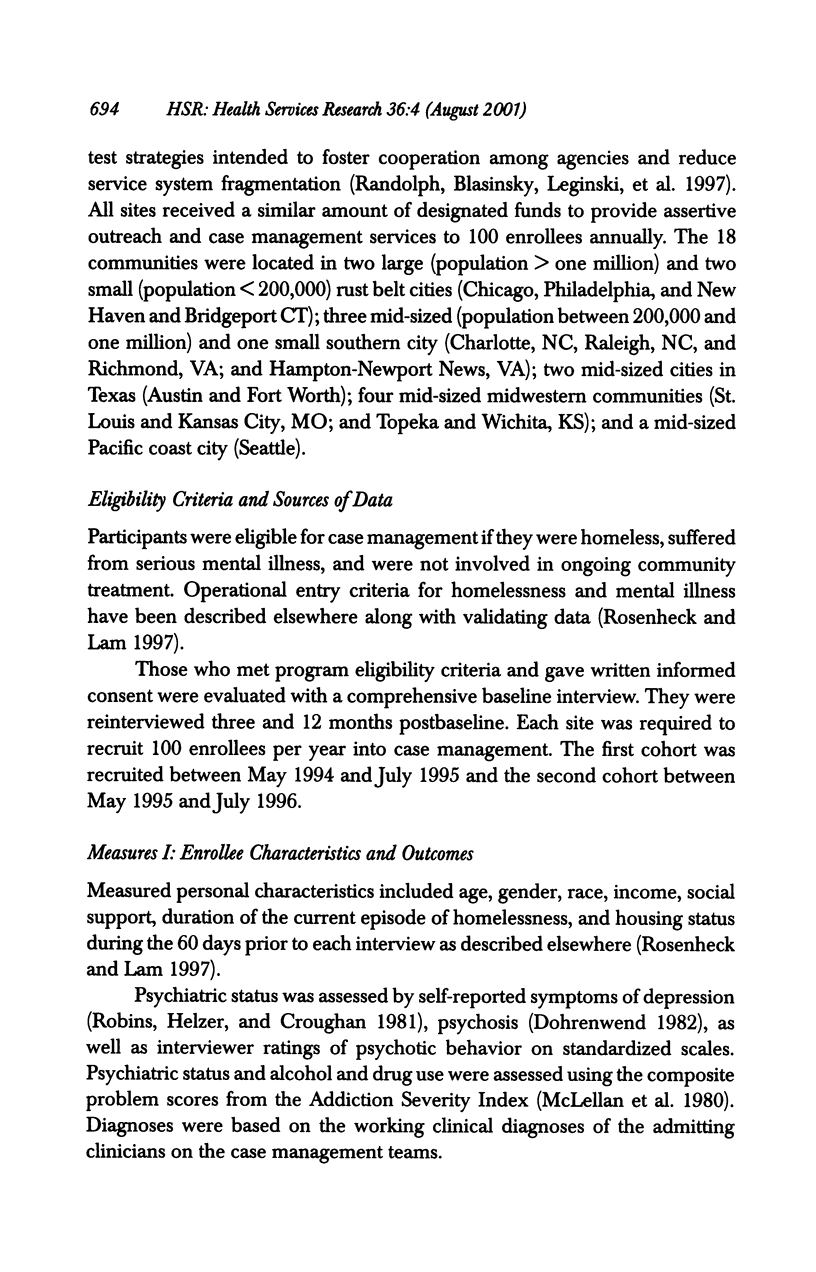
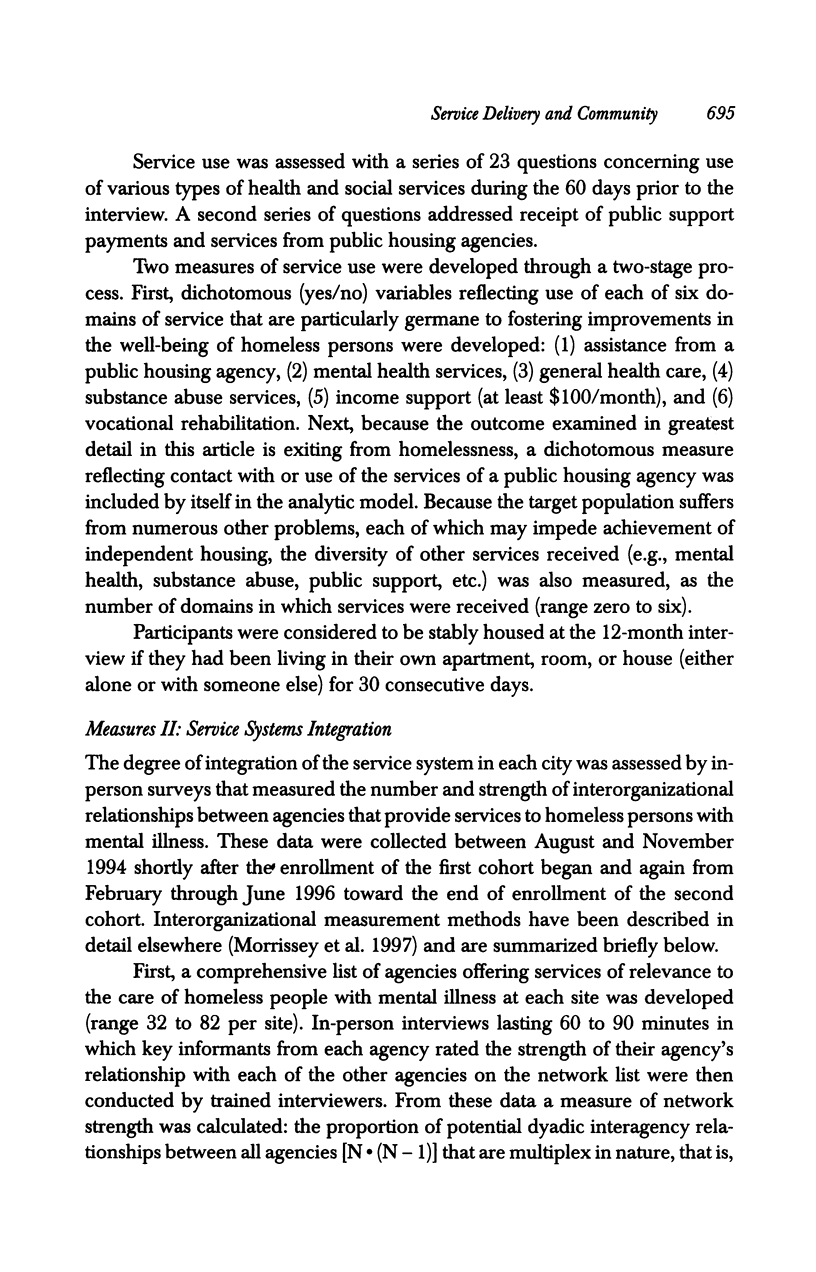
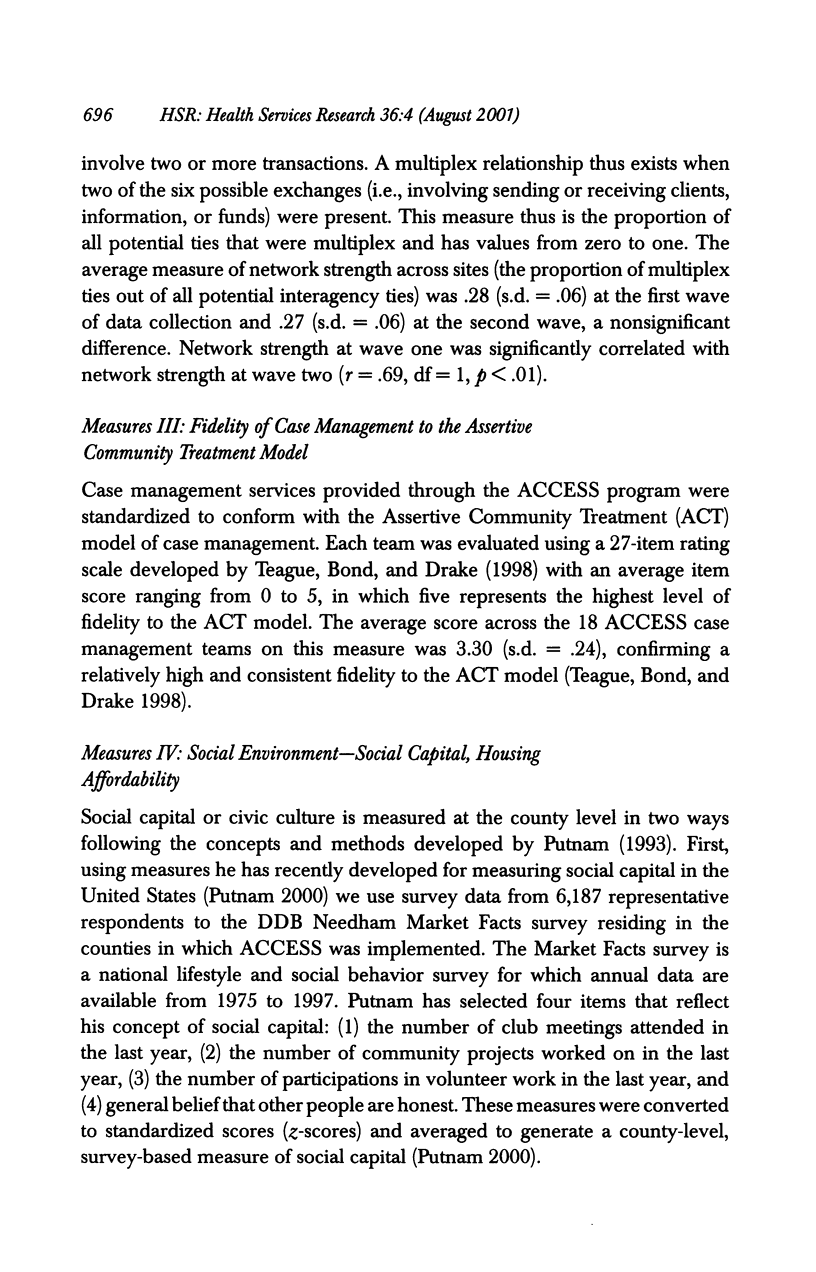
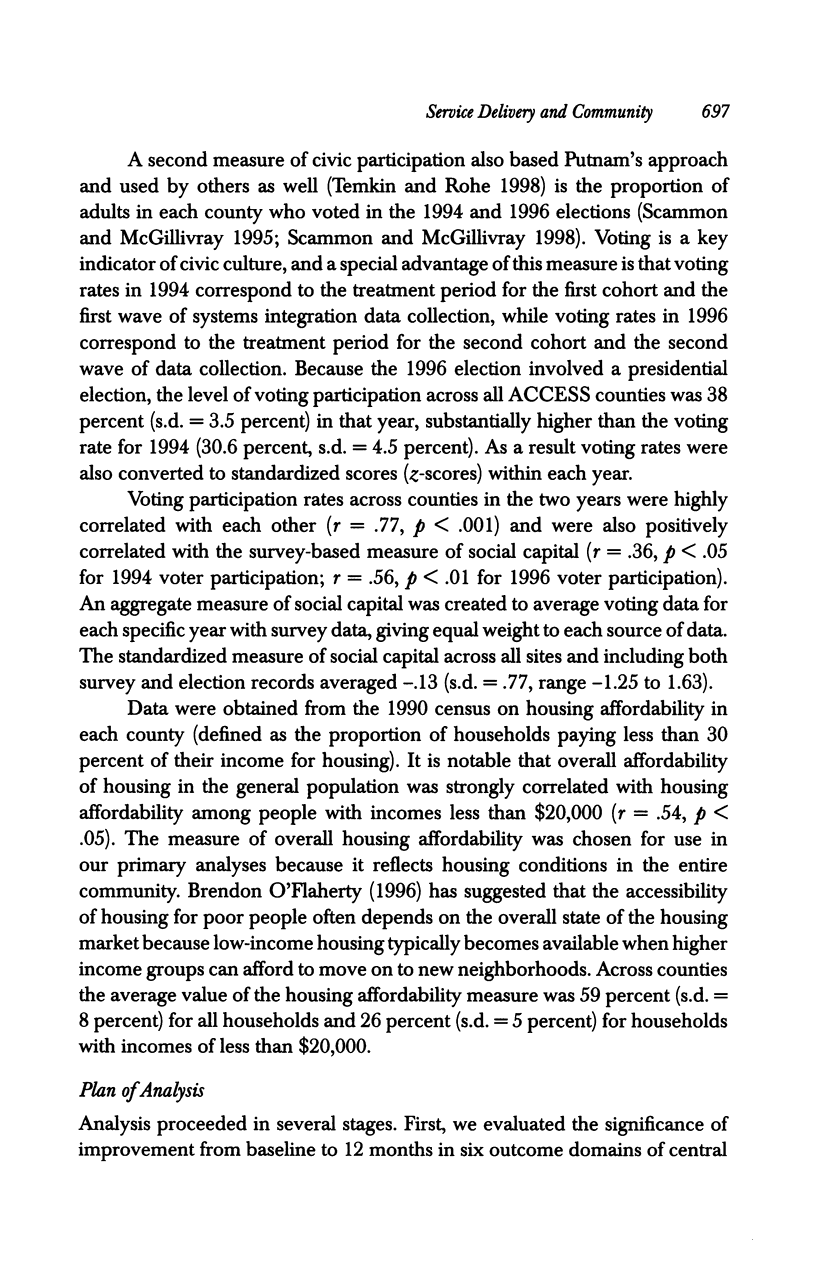
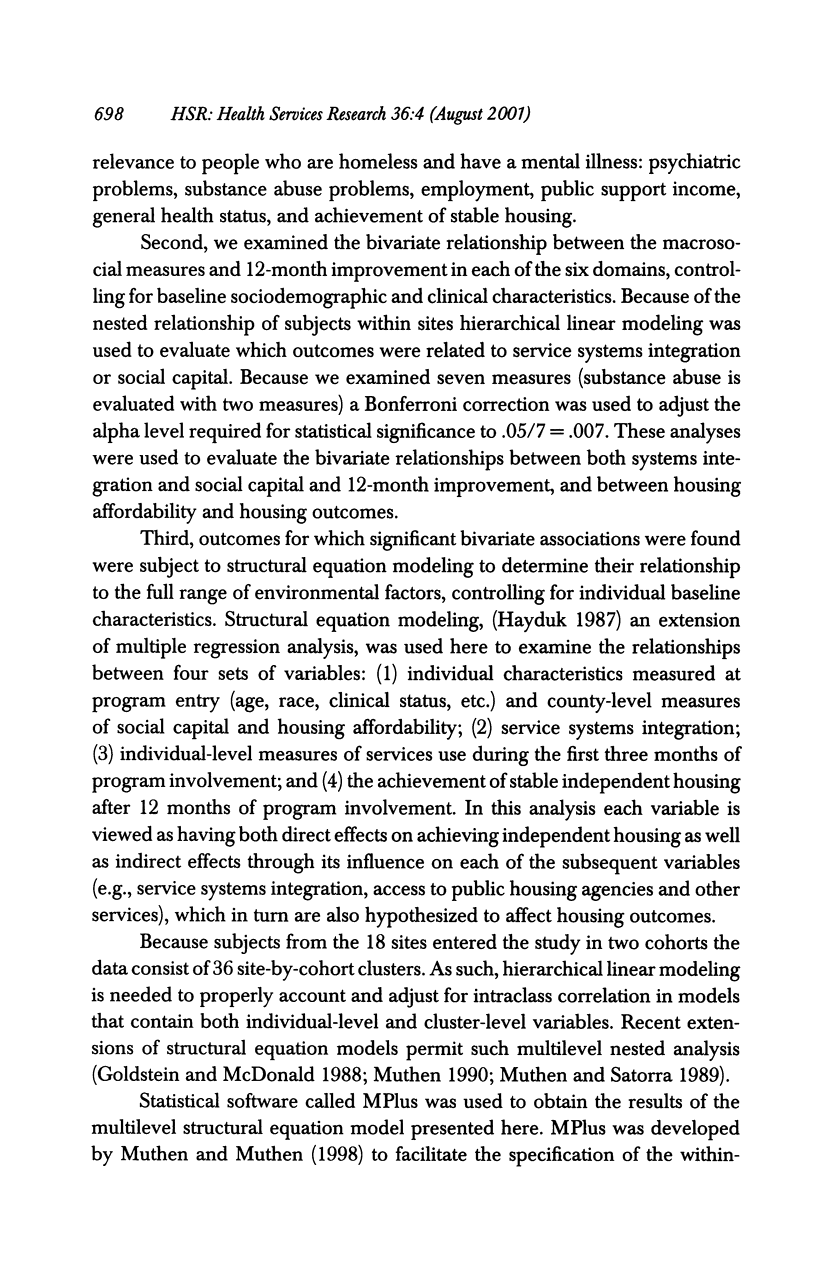
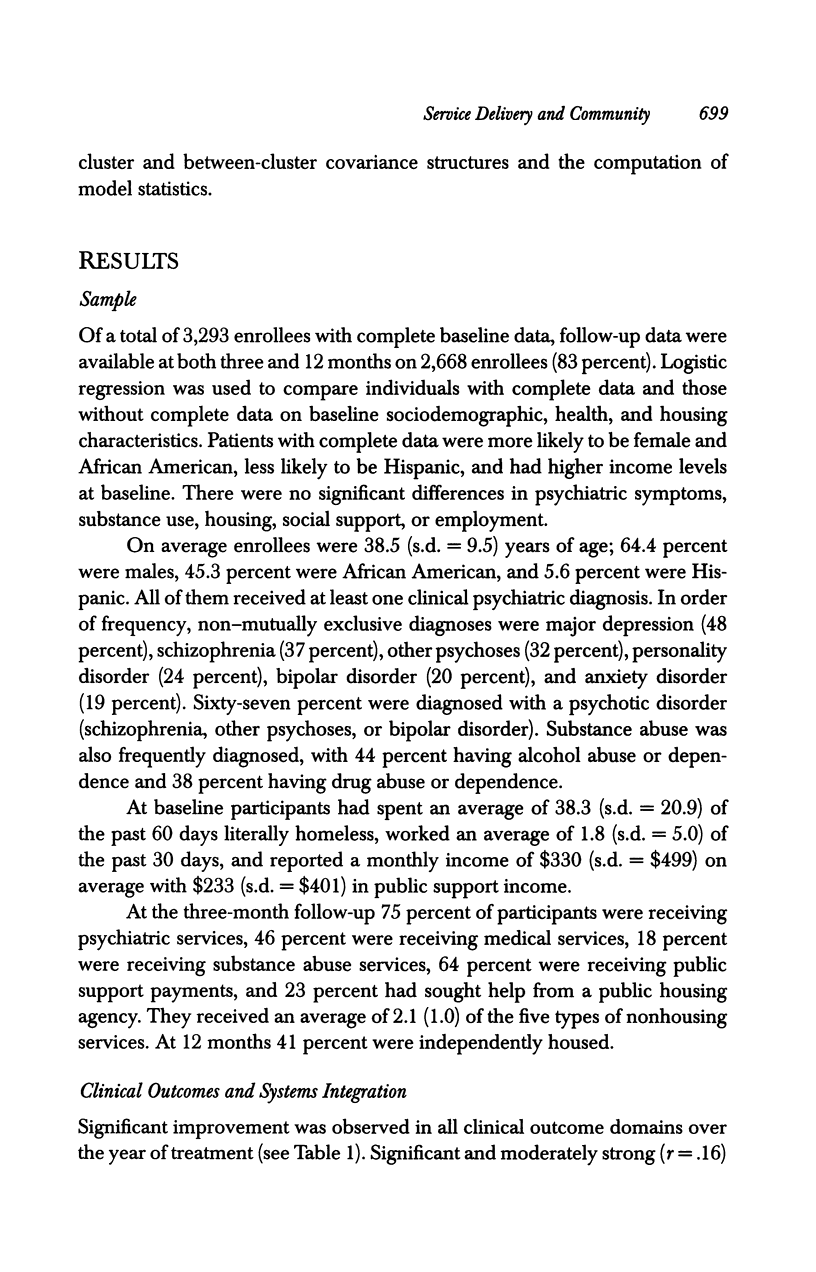
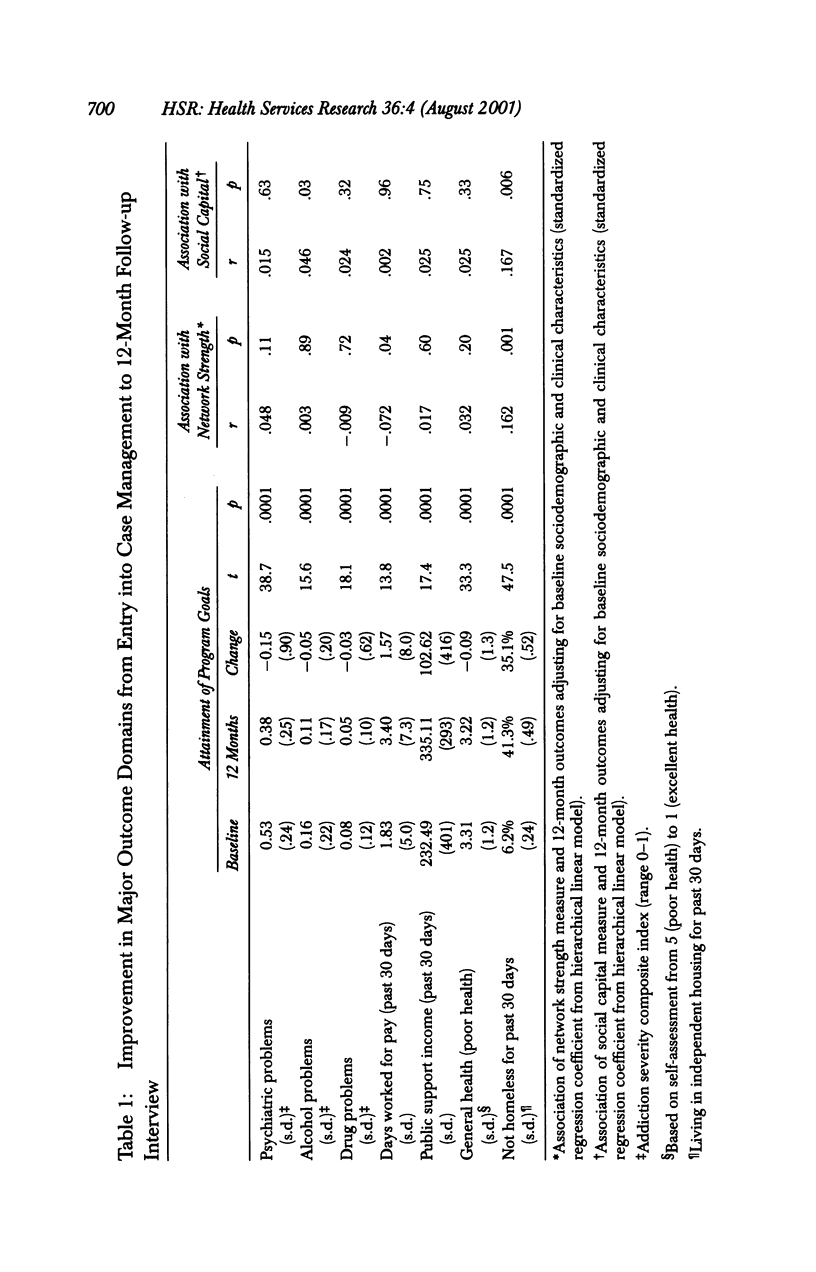
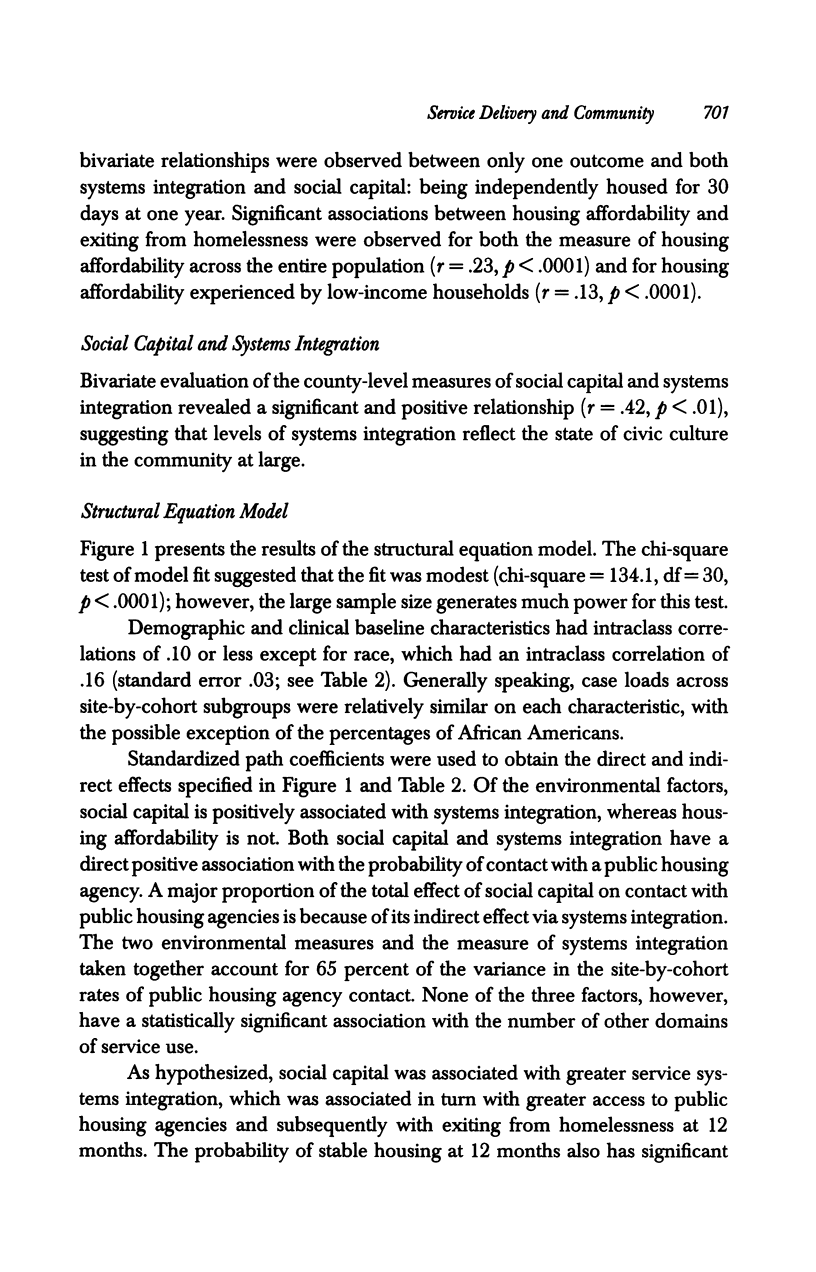
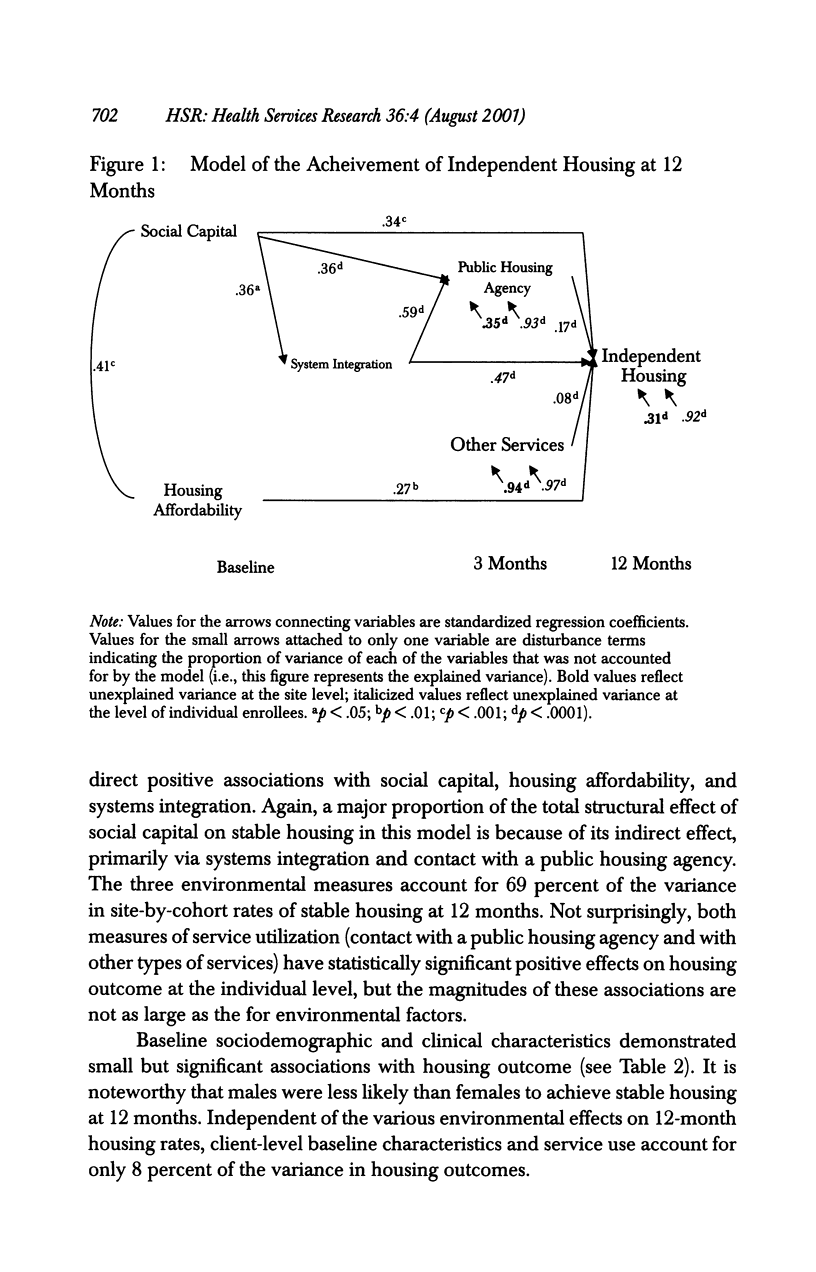
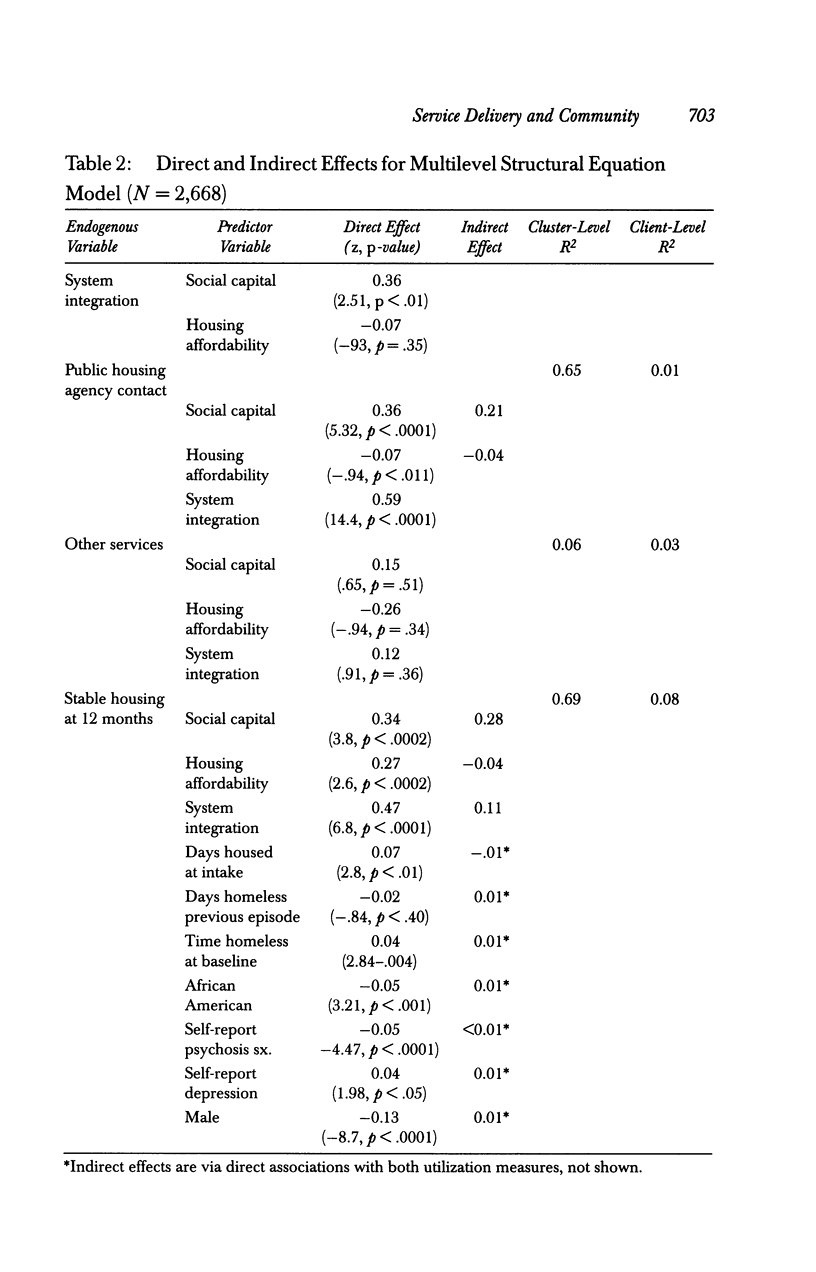
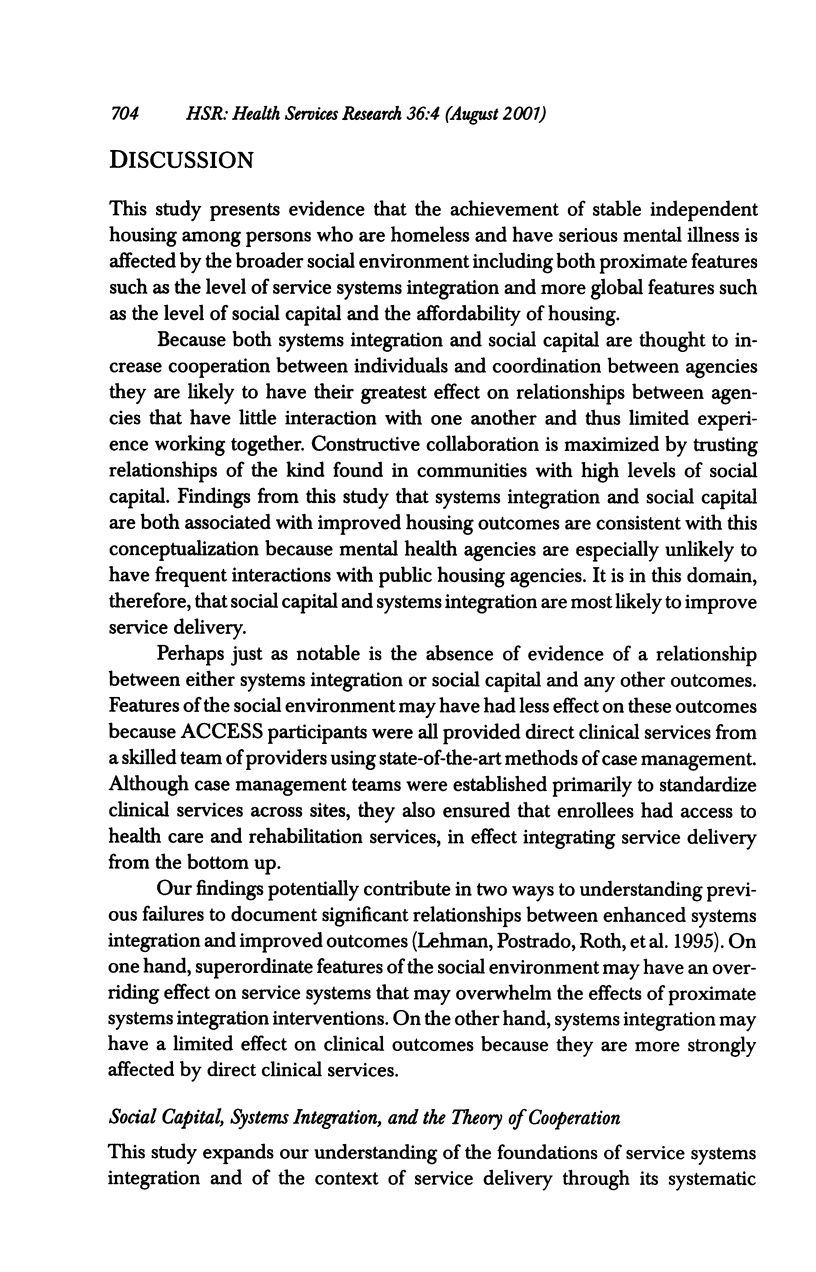
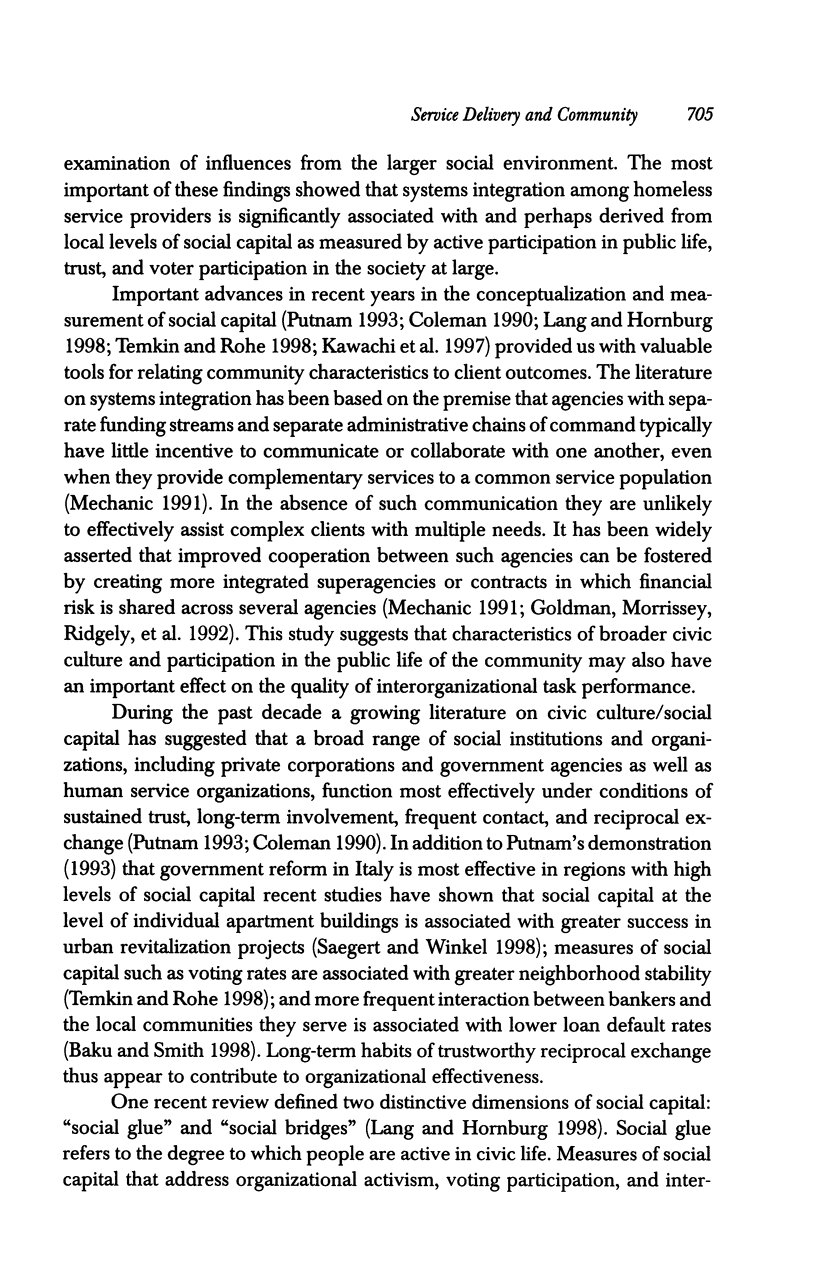
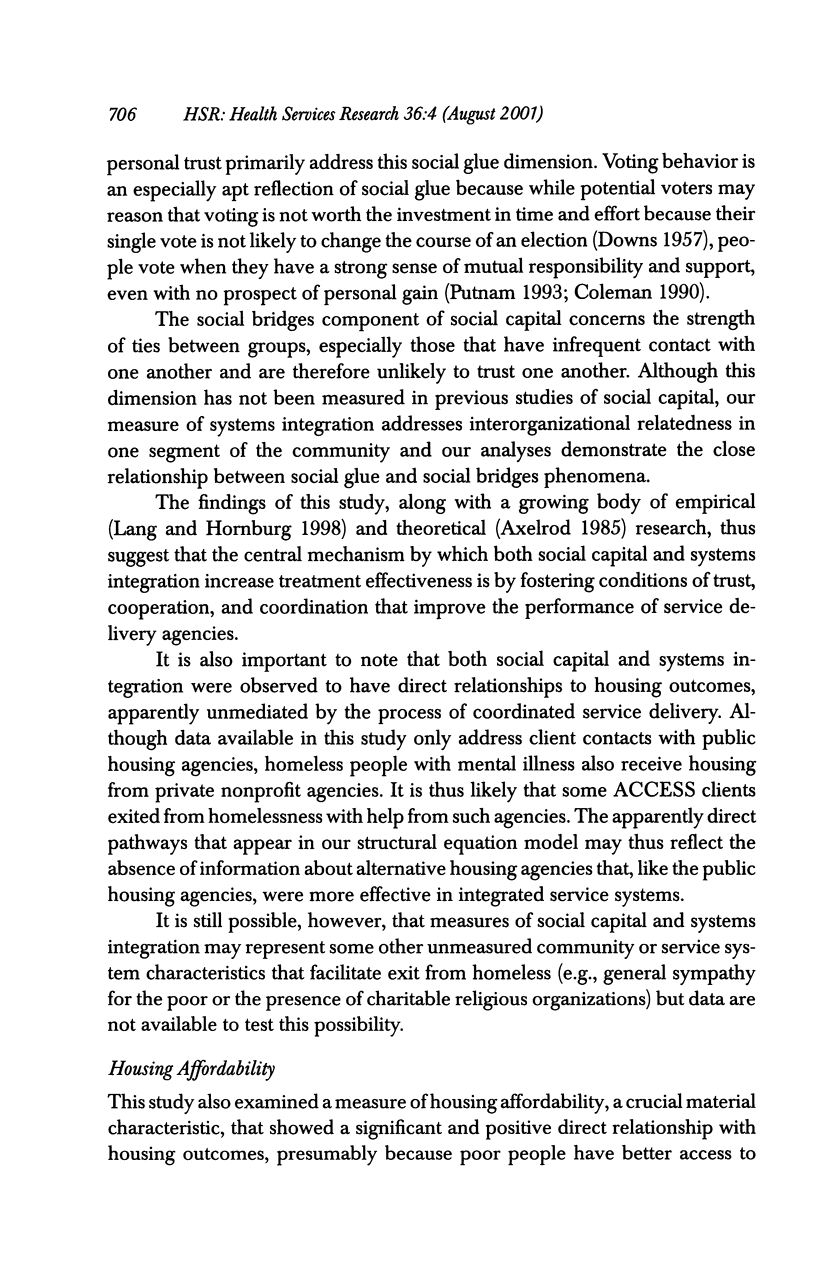
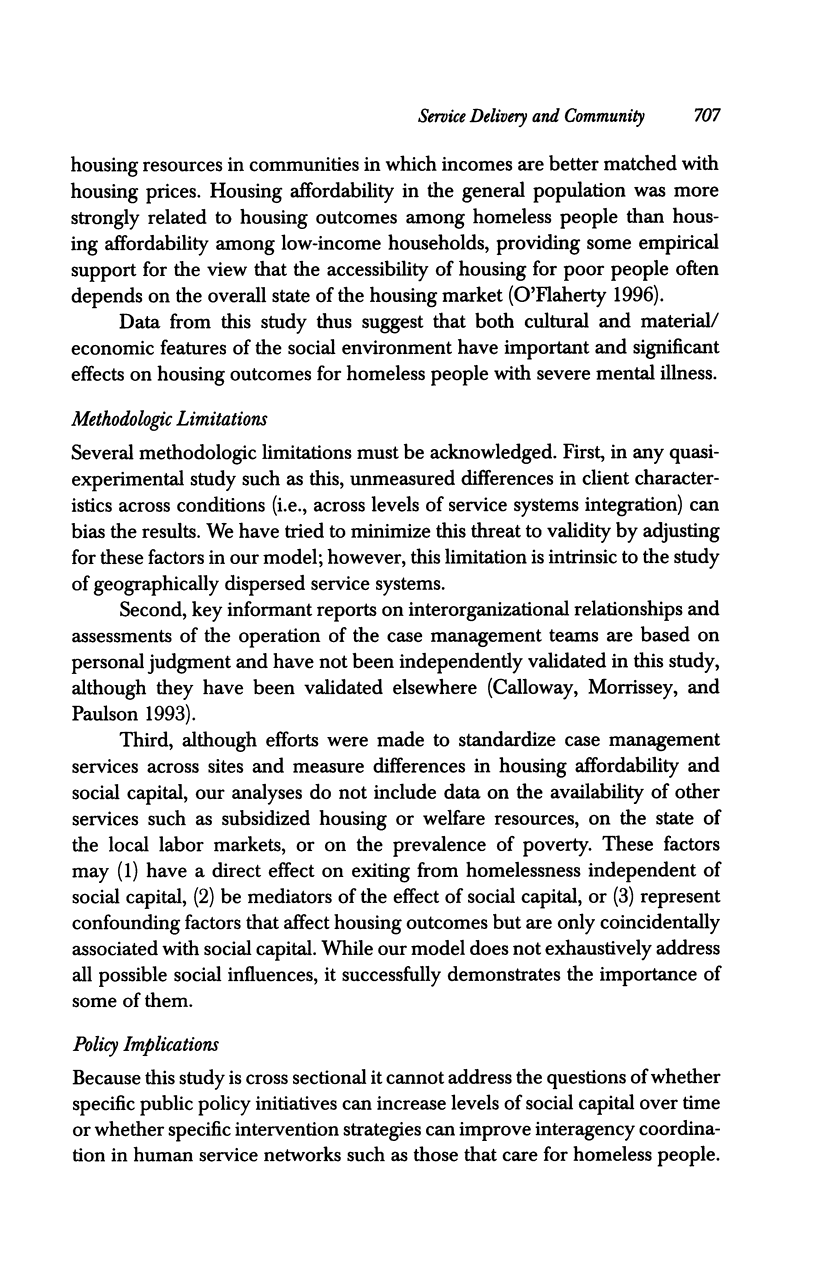
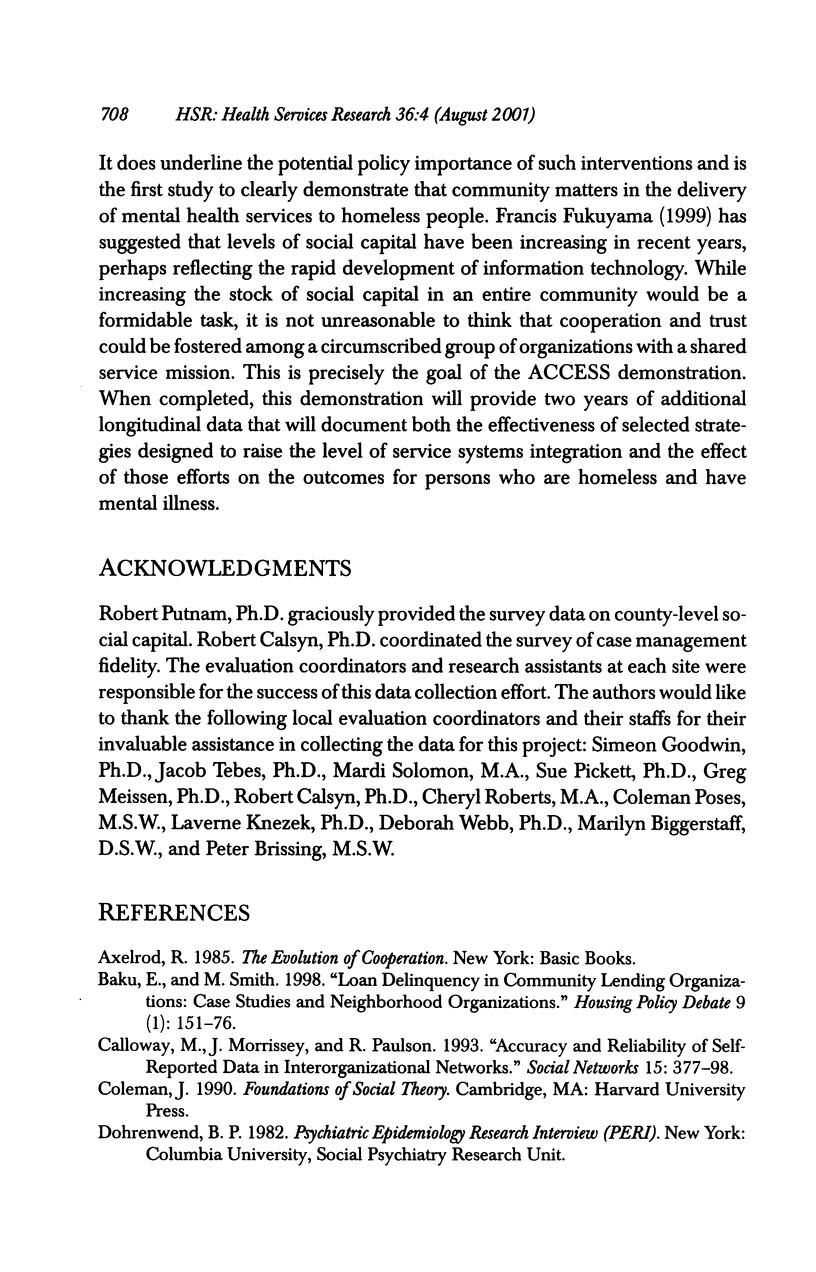
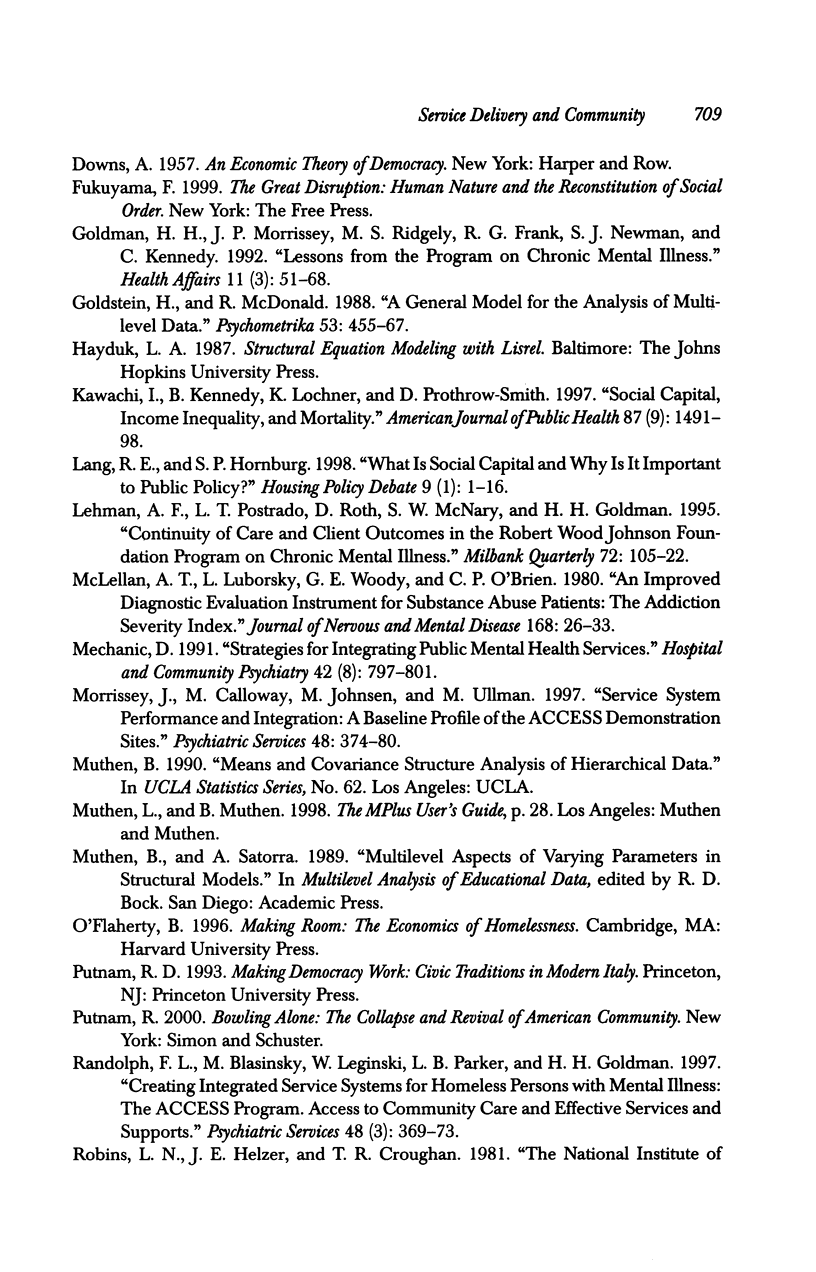
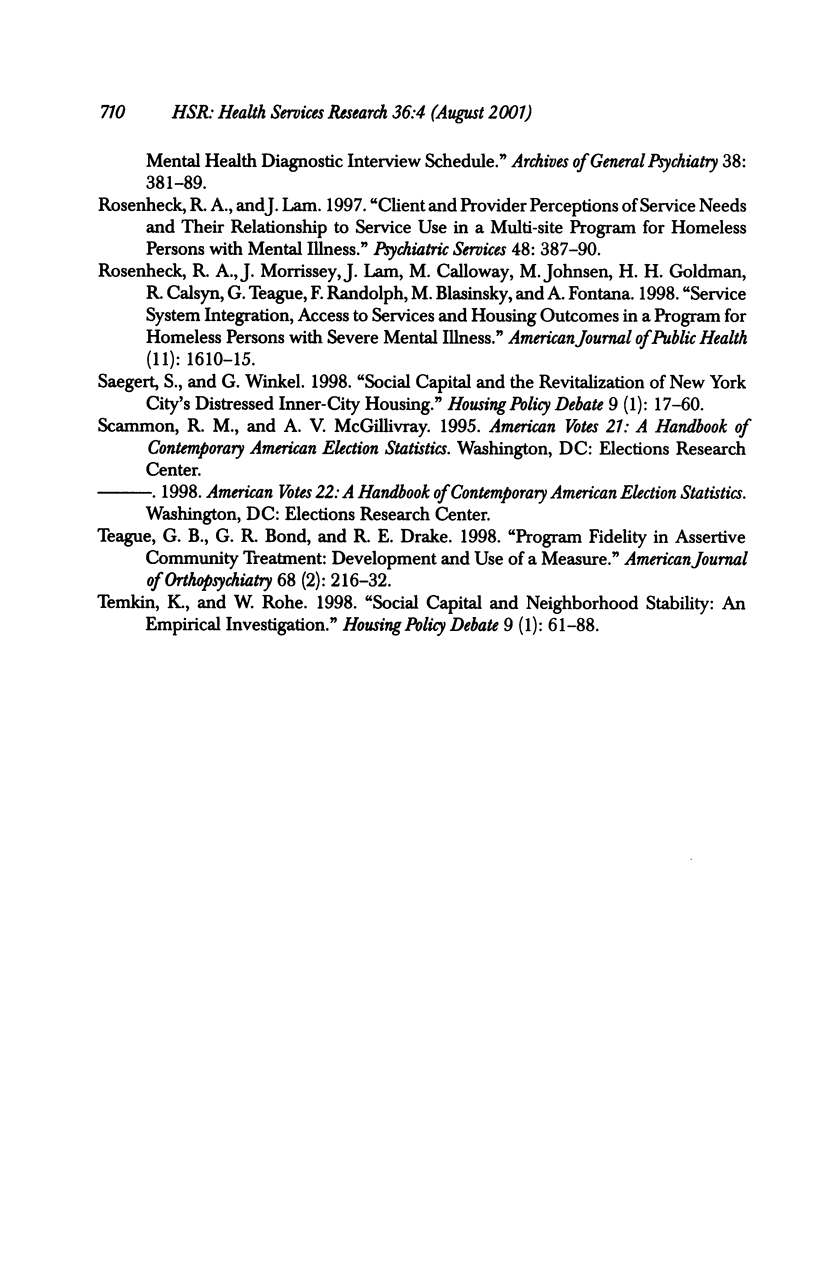
Selected References
These references are in PubMed. This may not be the complete list of references from this article.
- Goldman H. H., Morrissey J. P., Ridgely M. S., Frank R. G., Newman S. J., Kennedy C. Lessons from the program on chronic mental illness. Health Aff (Millwood) 1992 Fall;11(3):51–68. doi: 10.1377/hlthaff.11.3.51. [DOI] [PubMed] [Google Scholar]
- Lehman A. F., Postrado L. T., Roth D., McNary S. W., Goldman H. H. Continuity of care and client outcomes in the Robert Wood Johnson Foundation program on chronic mental illness. Milbank Q. 1994;72(1):105–122. [PubMed] [Google Scholar]
- McLellan A. T., Luborsky L., Woody G. E., O'Brien C. P. An improved diagnostic evaluation instrument for substance abuse patients. The Addiction Severity Index. J Nerv Ment Dis. 1980 Jan;168(1):26–33. doi: 10.1097/00005053-198001000-00006. [DOI] [PubMed] [Google Scholar]
- Mechanic D. Strategies for integrating public mental health services. Hosp Community Psychiatry. 1991 Aug;42(8):797–801. doi: 10.1176/ps.42.8.797. [DOI] [PubMed] [Google Scholar]
- Morrissey J., Calloway M., Johnsen M., Ullman M. Service system performance and integration: a baseline profile of the ACCESS demonstration sites. Access to Community Care and Effective Services and Supports. Psychiatr Serv. 1997 Mar;48(3):374–380. doi: 10.1176/ps.48.3.374. [DOI] [PubMed] [Google Scholar]
- Randolph F., Blasinsky M., Leginski W., Parker L. B., Goldman H. H. Creating integrated service systems for homeless persons with mental illness: the ACCESS Program. Access to Community Care and Effective Services and Supports. Psychiatr Serv. 1997 Mar;48(3):369–373. doi: 10.1176/ps.48.3.369. [DOI] [PubMed] [Google Scholar]
- Robins L. N., Helzer J. E., Croughan J., Ratcliff K. S. National Institute of Mental Health Diagnostic Interview Schedule. Its history, characteristics, and validity. Arch Gen Psychiatry. 1981 Apr;38(4):381–389. doi: 10.1001/archpsyc.1981.01780290015001. [DOI] [PubMed] [Google Scholar]
- Rosenheck R., Lam J. A. Client and site characteristics as barriers to service use by homeless persons with serious mental illness. Psychiatr Serv. 1997 Mar;48(3):387–390. doi: 10.1176/ps.48.3.387. [DOI] [PubMed] [Google Scholar]
- Rosenheck R., Morrissey J., Lam J., Calloway M., Johnsen M., Goldman H., Randolph F., Blasinsky M., Fontana A., Calsyn R. Service system integration, access to services, and housing outcomes in a program for homeless persons with severe mental illness. Am J Public Health. 1998 Nov;88(11):1610–1615. doi: 10.2105/ajph.88.11.1610. [DOI] [PMC free article] [PubMed] [Google Scholar]
- Teague G. B., Bond G. R., Drake R. E. Program fidelity in assertive community treatment: development and use of a measure. Am J Orthopsychiatry. 1998 Apr;68(2):216–232. doi: 10.1037/h0080331. [DOI] [PubMed] [Google Scholar]


